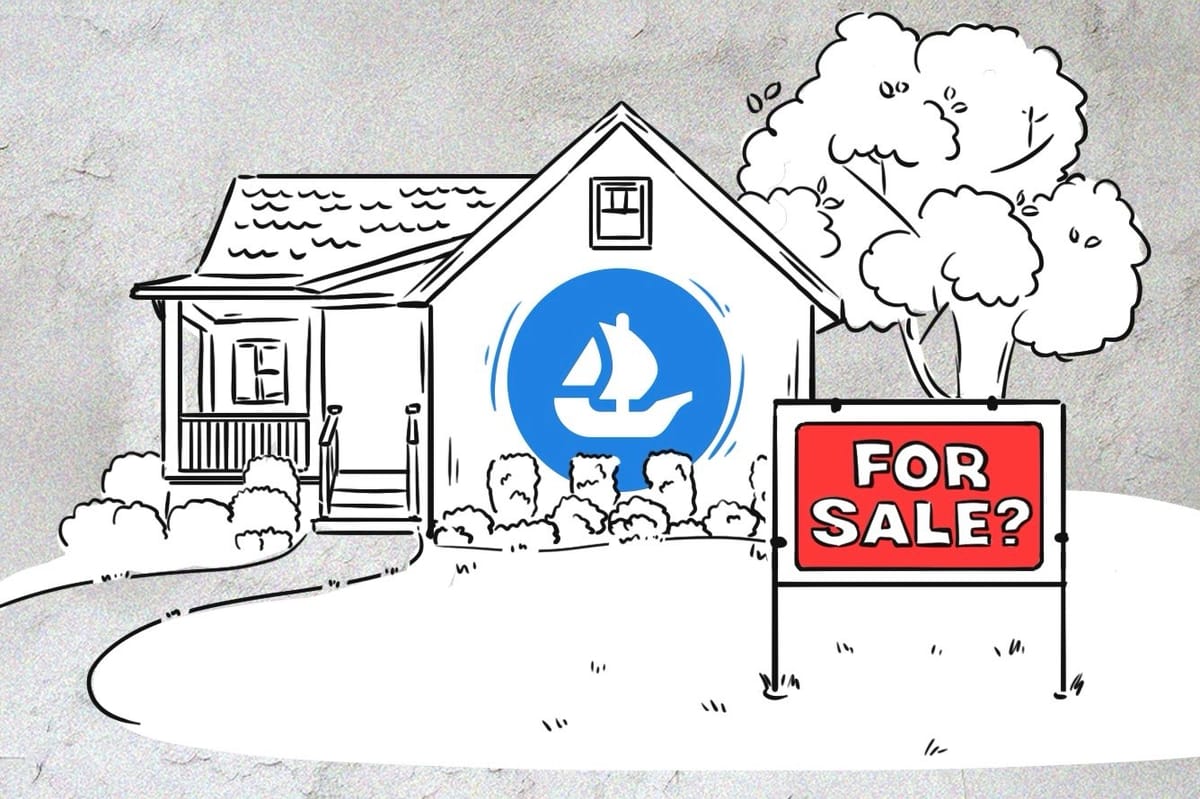
In a recent interview, OpenSea’s CEO, Devin Finzer, discussed acquisition plans for the NFT marketplace he co-founded in 2017. He admitted that, while there is currently no deal, “if the right partnership comes along, then that’s something we should certainly consider.”
The past year has been tough for OpenSea. The number one marketplace in trade volume a year ago lost its position to newcomer Blur in February. Its decision to drop enforcement of creator royalties in August earned it a lot of criticism, and in November it let go of 50% of its staff. By December, it had fallen to fourth in the ranking of NFT marketplaces by trading volume.
While rumours of an acquisition intensify the notion that OpenSea is in a downfall, Finzer is confident about its success.
In an interview with Bloomberg two weeks ago, he noted that “trading volumes can be a little bit misleading at times” and highlighted the changes the company plans to make in the growing complexity of the NFT ecosystem.
OpenSea is currently working on an upgrade to create “a marketplace interface that can be better customized to suit each type of use case”, to better cater for the needs of a new wave of users coming into the market due to the introduction of low-barrier NFTs, NFTs growing popularity in Web3 gaming, and as promotional tools for blockchain projects.
Another crucial reason for Finzer’s optimism is that OpenSea remains the number one marketplace in terms of user volume. In the past 30 days, it had 123,000 active users, over 65,000 more than its closest competitor, Blur.
The metric is all the more telling when taking a birds-eye view of the market. According to crypto data aggregator DappRadar, while the average price of an NFT sale has decreased 91% in a year, from $2254 in 2022 to $210 in 2023, the number of non-fungible token sales skyrocketed by 445%, and the number of users has remained constant throughout the last 12 months.
Despite its efforts to accommodate new use cases and its ability to capture the greatest number of traders, the marketplace is far from a safe place. As this month comes to an end, the number of active users on OpenSea is the lowest it has been since September, while the competition is ramping up its efforts to increase its user base.
As the dynamics in the non-fungible token market continue to evolve in unexpected and novel ways, will OpenSea be able to crawl out of its currently unfavourable position alone, or will it need to stand on somebody else’s shoulders to keep competitors at bay? Finzer guaranteed that any future acquisition is “pure conjecture” for now.

